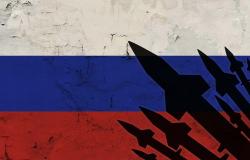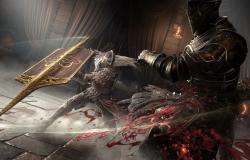The anniversary of Day D Thursday (the 80th) is provoking somber and anxious reflections on the fate of the Atlantic alliance. Somber because the last member of the Greatest Generation will soon no longer be with us. Anxious because donald trumpand his evident disdain for that alliance, may soon be with us again.
The anxiety is partly misplaced. Trump’s gruesome American nationalism is a terrible idea for many reasons, including the encouragement he gives to Vladimir Putin and Xi Jinping to attack weaker American allies. But Trump is also the messenger of a warning that Europeans desperately need to heed.
In a nutshell: get in shape.
Europe today faces four great challenges that typically determine the destiny of great powers. Take a quick look:
Growth and dynamism: In 1960 the 28 countries of the EU (the current 27 plus Britain) accounted for 36.3 percent of the world’s gross domestic product. In 2020 they had fallen to 22.4 percent. It is predicted that by the end of the century it will fall to just under 10 percent. In contrast, the United States has maintained a more or less constant share (about a quarter) of world GDP. from the Kennedy administration.
Think about any cutting-edge industry (artificial intelligence, microchips, software, robotics, genomics) and ask yourself (with some honorable exceptions): where is the European Microsoft, Nvidia or OpenAI?
Military power: When the Cold War ended in 1990, the West German military deployed more than 500,000 soldiers and spent 2.5 percent of its GDP. in defence. As of last year, it had dropped to 181,000 soldiers and 1.57 percent. The British Royal Navy, the most powerful in the world at the start of World War II, can now field only 10 submarines and fewer than two dozen large surface warships, some of which are inactive.
In an all-out war, the British would exhaust their defense capabilities in about two months, according to a report presented to the House of Commons defense committee. The same would probably happen (if not much sooner) for all EU member countries besides Poland, which aims to spend up to 5 percent of its GDP. on defense next year.
Demography: What do Chancellor Olaf Scholz of Germany, his predecessor Angela Merkel, President Emmanuel Macron of France, Prime Minister Mark Rutte of the Netherlands and former British Prime Minister Theresa May have in common? They do not have kids. This is their personal matter (and far from representative of all EU leaders), but it is a symbol of a continent where just under 3.9 million Europeans were born in 2022 and 5.15 million died. . A shrinking and aging population often correlates with low economic growth, especially since entrepreneurship is often a young man’s game.
Europe has an additional challenge: a relatively high Muslim birth rate, along with the prospect of long-term Muslim migration. According to a “medium migration” scenario estimated by Pew, by 2050 Britain will be almost 17 percent Muslim, France 17.4 percent and Sweden 20.5 percent. Those who wonder about the rise of far-right European parties, which are the big favorites to sweep this week’s EU elections, are the most doubtful. Parliament, which is often sympathetic to Vladimir Putin, knows this is a factor. And they must be honest that the values of depressingly notable segments of these Muslim populations are fundamentally at odds with European traditions of moral tolerance and political liberalism.
Purpose and will: Many of Europe’s current failures are explained (often by European leaders themselves) as a problem of political mechanics: insufficient coordination between states; inadequate power in Brussels; transmission failures between stated objectives and real-world results. But the problem is not just one of process. He is also one of spirit. A few questions:
If Russia defeats Ukraine and decides in a few years to attack one of the Baltic countries, is there a large reserve of young Germans, Belgians or Spaniards willing to die for Tallinn or Vilnius?
As NATO’s European members struggle to meet the minimum target of spending 2 percent of their GDP on defense, are they willing to accept the fact that they probably need to spend twice as much?
How much state protection, in terms of social welfare and economic regulation, are older European voters willing to give up in the name of creating a more dynamic economy for a shrinking number of young people?
How forceful are European leaders willing to be in insisting that their values (including freedom of expression, women’s rights and gay rights) must be protected against the illiberal instincts of an increasing proportion of their voters?
Trump’s ideas about NATO, his zero-sum attitudes toward victory, his penchant for strongmen, and his ignorance and indifference to history are rightly cause for European alarm. But people and nations succeed or fail to the extent that they refuse to hand over responsibility for their destiny to others.
“The world is what it is; men who are nothing, who allow themselves to become nothing, have no place,” he VS Naipaul once warned. It is good advice for Europe on this solemn anniversary of its previous liberation.
© The New York Times 2024






